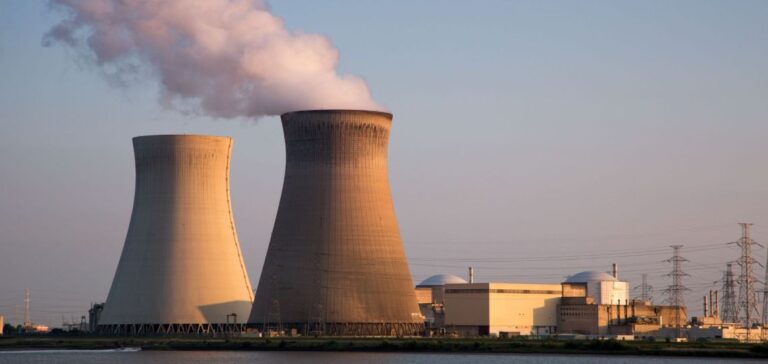The Belgian government has officially announced its intention to expand the country’s nuclear capacity, stating the extension of 4 gigawatts (GW) of existing reactors and the development of new infrastructures to reach a total of 8 GW. This announcement, made by Prime Minister Bart De Wever before parliament, requires a legislative modification to lift the ban on nuclear energy production in Belgium.
A legislative reform to extend nuclear energy
The current legislation, adopted in 2003, mandates the gradual shutdown of Belgium’s nuclear fleet. However, the government intends to remove two articles from this law: one setting the closure schedule for reactors and another prohibiting the production of atomic-based energy. This amendment would allow the extension of existing plants and the construction of new reactors.
Energy Minister Mathieu Bihet emphasized that this reform should be implemented quickly to ensure energy continuity and avoid excessive dependence on fossil fuels, such as natural gas. The priority is given to extending the Doel 4 and Tihange 3 plants, which were initially scheduled for shutdown, along with other units that could remain operational.
Small modular reactors under consideration
In parallel with the extension of existing reactors, the Belgian government is considering the deployment of small modular reactors (SMRs). These new infrastructures, which require a specific regulatory framework, would allow energy production to be adapted according to industrial and residential needs.
The partial repeal of the 2003 law will not, however, alter the legal framework for periodic safety assessments. The entire system will need to comply with European standards and the evolving energy market.
A favorable geopolitical and economic context
The decision to maintain and increase nuclear capacity comes in a context marked by energy tensions in Europe. Since 2022, the war in Ukraine and reliance on gas imports have led several states to revise their energy strategies. In Belgium, the previous government had already extended two reactors for ten years, until 2035.
Industry stakeholders are closely monitoring these developments, particularly the French energy company Engie, which currently operates Belgian nuclear plants. Negotiations with industrial partners will be crucial in determining the financing and implementation of these new infrastructures.





















